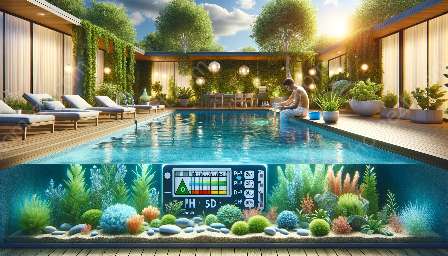Cyanuric acid plays a vital role in maintaining water chemistry, particularly in the context of swimming pools and spas. In this comprehensive guide, we will explore the properties of cyanuric acid, its impact on water balance, its interaction with chlorine, and its significance in pool maintenance.
What is Cyanuric Acid?
Cyanuric acid, also known as stabilizer or conditioner, is a chemical compound commonly utilized in swimming pools and spas to stabilize chlorine. It is a white, odorless, and acidic crystalline powder. The primary function of cyanuric acid is to protect chlorine from degradation caused by ultraviolet (UV) radiation. By adding cyanuric acid to pool water, the chlorine molecules become more resistant to UV breakdown, thereby prolonging its effectiveness.
Cyanuric Acid and Water Balance
Proper water balance is crucial for maintaining the overall quality of pool water. Cyanuric acid significantly impacts water balance by protecting chlorine, the primary disinfectant, from dissipation due to sunlight exposure. When cyanuric acid levels are within the recommended range, it helps in stabilizing the chlorine, allowing it to remain active in the water for longer periods, thus effectively controlling the growth of harmful bacteria and algae.
Effects on Chlorine Effectiveness
Unprotected chlorine in pool water is susceptible to rapid dissipation when exposed to sunlight. This can lead to frequent and excessive use of chlorine, resulting in increased maintenance costs. Cyanuric acid acts as a shield, reducing the rate of chlorine loss due to UV radiation. This leads to more efficient use of chlorine, maintaining its effectiveness and ensuring proper sanitation of the pool water.
Measuring Cyanuric Acid Levels
A key aspect of managing cyanuric acid in swimming pools and spas is to regularly measure its concentration. This is typically done using a cyanuric acid test kit. It is important to monitor and maintain appropriate cyanuric acid levels to ensure optimal chlorine protection. However, it is equally important to avoid over-stabilization, as excessively high cyanuric acid levels can impede the overall efficacy of chlorine, a condition known as chlorine lock.
Cyanuric Acid in Pool Maintenance
In addition to its role in protecting chlorine, cyanuric acid also influences other aspects of pool maintenance. By stabilizing chlorine, it reduces the frequency of chlorine application, thus minimizing the need for constant monitoring and chemical adjustments. This not only simplifies pool maintenance but also contributes to cost savings in the long run.
Conclusion
In conclusion, cyanuric acid is an essential component of water chemistry in swimming pools and spas. Its impact on chlorine effectiveness, water balance, and overall pool maintenance underscores its significance in ensuring safe and enjoyable swimming experiences. Proper management of cyanuric acid levels is integral to maintaining a healthy and well-maintained pool environment.



















